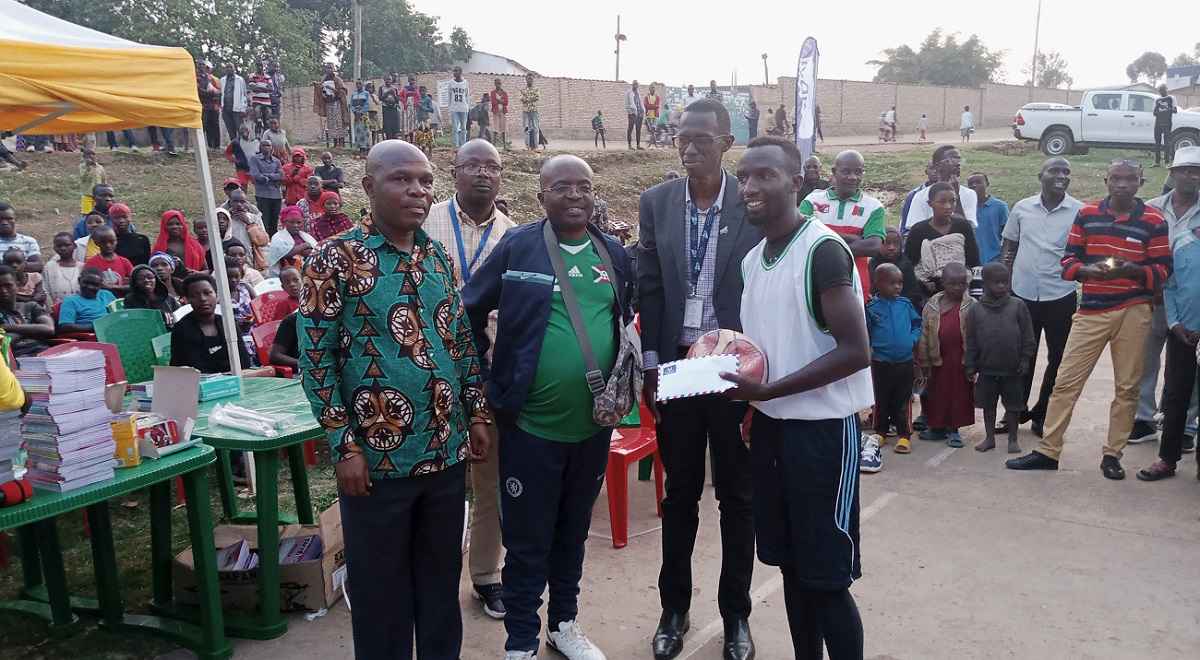As part of the monitoring of beneficiaries of the NUREM project, the SERVICE YEZU MWIZA organized on May 15, 2019, a field trip to know the situation of income-generating activities in progress especially for the groups who chose the projects that take longtime to produce, especially rice cultivation and livestock.
With a smile on their faces, the beneficiaries of Kabezi who are rice growers were all happy when they were harvesting their rice plantation. They were trying to collect grains of rice
"By giving us the capital, SYM has become like a parent for us, we will never end to thank him because he has pulled us out of loneliness and poverty, and today we are all happy on this harvest day. The weather was nice and the yield is really good, I remember when we joined these AGRs, the project leaders told us that if we work diligently, tomorrow will be better". Says Germaine member of that group
 Note that for that group, another part of their fields will be ready for harvest in two weeks.
"This group is really welded and works well, other groups can take it as a model and see that when we work together and the result is impressive. testifies Amida Youssa (Umuremeshabikogwa)
Note that for that group, another part of their fields will be ready for harvest in two weeks.
"This group is really welded and works well, other groups can take it as a model and see that when we work together and the result is impressive. testifies Amida Youssa (Umuremeshabikogwa)
The same feeling of joy was in Gatumba group that makes goat breeding, their goats has just put down 2 kids and they were happy to see that their activity start to give fruit.
 "To see that delight, gives me hope for these beneficiaries but also makes me so happy to see that the work of the SYM has a positive impact on the beneficiaries, they them even reported before this project they were in misery but today thanks to these income generating activities their lifestyle has changed completely". ensures Jeanine overseeing of Nurem project's IGAs
"To see that delight, gives me hope for these beneficiaries but also makes me so happy to see that the work of the SYM has a positive impact on the beneficiaries, they them even reported before this project they were in misery but today thanks to these income generating activities their lifestyle has changed completely". ensures Jeanine overseeing of Nurem project's IGAs
SYM: Distribution of school kits to members of associations of people affected by leprosy

SYM: Sensitization on pre and post-exposure to HIV in Kayanza and Ngozi
SYM: Managing co-morbidities among people living with HIV
SYM: Quarterly meeting of community relays
Distribution of work tools to young volunteers and to the pillars of the SRH community solutions project called